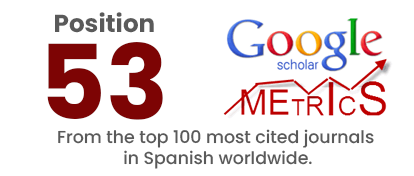Heritage cuisine and gastronomic tourism in Ecuador: a systematic review of cultural valorization strategies
DOI:
https://doi.org/10.36097/rsan.v1i63.3653Keywords:
heritage cuisine, gastronomic tourism, intangible cultural heritage, cultural valorization, food identity, EcuadorAbstract
Heritage cuisine represents a fundamental dimension of intangible cultural heritage, encompassing knowledge, practices, ingredients, and symbolisms deeply rooted in territorial identities. This culinary legacy has emerged as a strategic axis for sustainable tourism development in Ecuador. The objective of the present study was to analyze the cultural valorization strategies of heritage cuisine in Ecuador within the framework of gastronomic tourism, in order to identify predominant conceptual approaches, notable practices, local stakeholder participation, and existing research gaps in the field. A qualitative methodology based on the SPIDER model was adopted, which allowed for a structured approach to the search, selection, and analysis of studies published between 2010 and 2024, resulting in a final synthesis of 15 works. The findings reveal a growing interest in culinary patrimonialization as a tourism resource, emphasizing traditional recipes, the evocation of food memory, and the design of gastronomic routes. Key stakeholders in the process were identified—governments, communities, the private sector, and universities—and notable initiatives such as food fairs, heritage inventories, origin certifications, and the training of local cooks were highlighted. Nevertheless, significant gaps remain, including limited research in Amazonian and Afro-descendant regions, scarce incorporation of gender perspectives, and weak institutional coordination. It is concluded that, although cultural valorization strategies are making meaningful progress, it is essential to foster a more inclusive, intersectional, and participatory research agenda to enhance the sustainability and authenticity of heritage cuisine as a cultural asset and a driver of development.
Downloads
References
Apolo, J., Coello, C., & Tapia, D. (2023). Influencia de la gastronomía en el gasto turístico en la provincia de Santa Elena. Revista Científica ECOCIENCIA, 10(1), 88–101. https://doi.org/10.21855/ecociencia.101.1006
Chango, S., Velasco, M., & Guaña, T. (2022). Diseño de rutas turísticas en base a la cocina ancestral en la sierra centro del Ecuador. Revista CienciAmérica, 11(2), 111–126. https://doi.org/10.33210/ca.v11i2.360
González, J., Erazo, C., & Macías, K. (2021). Patrimonialización de los recursos pesqueros en Galápagos. Revista Técnica “Universidad Técnica del Norte”, 9(1), 53–62. https://doi.org/10.31243/rt.v9i1.915
Herrera, K., Zambrano, R., & Vera, M. (2020). Saberes culinarios de mujeres en zonas rurales de Manabí. Revista Científica Dominio de las Ciencias, 6(2), 558–573. https://doi.org/10.23857/dc.v6i2.1735
Jiménez-Beltrán, F., Salazar, A., & Villavicencio, M. (2016). Gastronomía, identidad y turismo en el Ecuador. Cultura y Patrimonio, 8(1), 89–102. https://doi.org/10.18601/01207555.n28.05
Pacheco, C. (2014). La papa: Identidad culinaria y patrimonio andino. En C. Pacheco (Ed.), Sabores de los Andes ecuatorianos (pp. 45–62). Instituto Nacional de Patrimonio Cultural.
Pagán-Jiménez, J. R., Rodríguez-Ramos, R., & Delgado, A. C. (2016). El maíz en el Ecuador prehispánico: Evidencia arqueobotánica. Arqueología Suramericana, 12(1), 67–85. https://revistas.uptc.edu.co/index.php/arqueologia
Pazos-Barrera, M. (2019). La cocina conventual en los monasterios del centro histórico de Quito: Recetario de tradiciones y sabores [Tesis de maestría, Universidad Andina Simón Bolívar]. https://repositorio.uasb.edu.ec/handle/10644/7090
Rodas, A., Benavides, L., Armijos, S., Andrade, A., Guamán Guevara, A. R., & Guamán-Guevara, F. (2024). Understanding motivational determinants of gastronomic tourism during peak seasons. Empirical evidence from Latacunga City in Central Ecuador. Miscellanea Geographica, 28(3), 101–111. https://doi.org/10.2478/mgrsd-2023-0036
Romero-Corral, M. (2018). Ruta gastronómica del centro histórico de Quito como propuesta de turismo cultural [Tesis de maestría, Universidad de Especialidades Turísticas (UCT)]. http://repositorio.uct.edu.ec/handle/123456789/350
Sosa-Sosa, I., & Thomé-Ortiz, H. (2020). La cocina patrimonial en la ciudad patrimonial. El caso de Quito. Pasos. Revista de Turismo y Patrimonio Cultural, 18(4), 717–731. https://doi.org/10.25145/j.pasos.2020.18.050
Sosa-Sosa, I., & Thomé-Ortiz, H. (2021). La nostalgia culinaria como elemento de atracción en el turismo urbano. Revista Latinoamericana de Estudios Turísticos, 21(2), 103–120. https://dialnet.unirioja.es/servlet/articulo?codigo=8061263
Sosa-Sosa, I., & Thomé-Ortiz, H. (2021). Memoria y nostalgia culinaria en la cocina popular de Quito. Revista Turismo y Sociedad, 29, 41–61. https://doi.org/10.18601/01207555.n29.04
Thompson, M., Cuesta, L., & Almeida, R. (2021). Gastronomía patrimonial en mercados tradicionales del Ecuador [Tesis doctoral, Universidad Central del Ecuador]. http://repositorio.uce.edu.ec/handle/25000/23005
Torres-Oñate, F., Viteri, M. F., Infante-Paredes, R., Donato-Moreira, S., Tamayo-Soria, R., & Núñez-Espinoza, M. (2019). Heritage cooking as tourist motivation: Ambato case study. In Advances in Science, Technology and Innovation (pp. 109–114). Springer. https://doi.org/10.1007/978-3-030-10804-5_11
Unigarro, D. (2010). Geografía del patrimonio alimentario del Ecuador. Instituto Nacional de Patrimonio Cultural.
Unigarro, D., Maruri, A., & Betancourt, A. (2014). Del fogón a la chacra: Circuitos agroalimentarios tradicionales del Ecuador. Instituto Nacional de Patrimonio Cultural.
Downloads
Published
How to Cite
Issue
Section
License
Copyright (c) 2025 Daliannis Rodríguez, Edwin Antamba, Gilma S. Gallegos

This work is licensed under a Creative Commons Attribution-NonCommercial-NoDerivatives 4.0 International License.


















